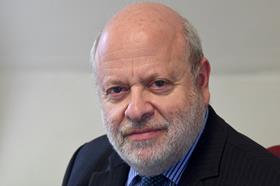Well done to the Law Society! It has just issued a paper on the future of the legal profession, called ‘Future Worlds 2050: images of the future worlds facing the legal profession 2020-2030’, which raises important issues for discussion and action.

There has been a growth in ‘future of the profession’ reports over the last few years. It has become something of a must-have accessory for every bar, law society and international legal organisation. This is not the Law Society’s first contribution, either. Having waded through a good few of the past reports, I think the Law Society’s latest is up there at the top, excellent and thought-provoking.
Much of the press coverage focused on the technology aspect, with the usual prediction about the loss of jobs to AI, together with the much more newsworthy prophesy that ‘Lawyers remaining within the profession must work alongside technology – and are required to take performance-enhancing medication in order to optimize their own productivity and effectiveness’.
But what I liked about the report is that it moved beyond technology, which has been the chief focus of nearly all ‘future of the profession’ reports. Although two of its themes are technology-related - ‘AI and emerging technologies’ and ‘Data, ethics and trust’, both inevitable - there were two further themes which are not so common when speaking of the legal profession: first, the geopolitical shifts taking place, such as the rise of China, and the economic and overall power shift to the Indo-Pacific region from the West; and second, the impact of climate change.
Many solicitors remain sceptical that there is a lawyer’s (and Law Society) role in climate change. But the report lays out some of the ways in which lawyers are increasingly called upon to act, including: the Green M&A landscape; identifying the importance of sustainability for clients; understanding how environmental factors are impacting different sectors, such as a rise in litigation against corporates and governments, and a rise in immigration as more people are displaced; forum shopping in liability cases, given that climate is a global issue; and the management of transition risks and stranded assets in the years leading up to the achievement of carbon targets. The role of the Law Society is clear: prepare the profession for a new world.
Personally, I think the report missed a trick in failing to point out the risk if the profession fails to respond properly to both the rising tension with China, which many now fear will turn into a new Cold War, and the increasing emphasis on green solutions, as was evident in the recent G7 meeting. There is a danger that the reputation of the profession, and so trust in it, will suffer if its members do not act with agility in riding these two powerful new forces, where blame may attach to those who are seen to enable perceived wrongdoers (cue here all the arguments about everyone having a right to representation, and the lawyer not being confused with the client’s interests).
The main sentence in the report is this one: ‘The importance of the concept of ‘trust’ emerges as the key requirement for the survival of the legal profession in all our scenarios.’ I agree. For instance, whatever machines are able to do, there is likely to be a continuing need for human input. As one of the interviewees put it: ‘most of the work that you do in a high-end legal profession does not have a yes/no answer’ because it depends on clashing and complex variables such as risk appetite and client strategy.
The report had its amusing side, too. When reading it, Professor Stephen Mayson of University College London revealed himself as an entrant for the ‘Eeyore of the legal profession’ contest. He is quoted three times in text boxes, every time with the same message for lawyers: your end is nigh. Here is a sample:
- (about lawyers facing future challenges): ‘They’re not ready. The best way to prepare themselves is probably to stop thinking of themselves as lawyers.’
- (about lawyers holding businesses to account over ethics): ‘I’m not sure that lawyers have a great role in ethics’
- (about lawyers’ role in assisting clients towards decarbonisation): ‘I don’t think lawyers are going to be in the driving seat of what gets adopted and what doesn’t.’
However, we ourselves don’t have to be Eeyores. This report has told us some of what may be coming, and that the key to our successful future is trust. If we can hold on to our reputation for trust, burnish it and make it our selling point, which will need to be achieved in different ways in accordance with the varying technological, geopolitical and climate upheavals before us, then our future may not be as gloomy as some doomsayers predict.
Jonathan Goldsmith is Law Society Council member for EU matters and a former secretary general of the Council of Bars and Law Societies of Europe. All views expressed are personal and are not made in his capacity as a Law Society Council member, nor on behalf of the Law Society































4 Readers' comments